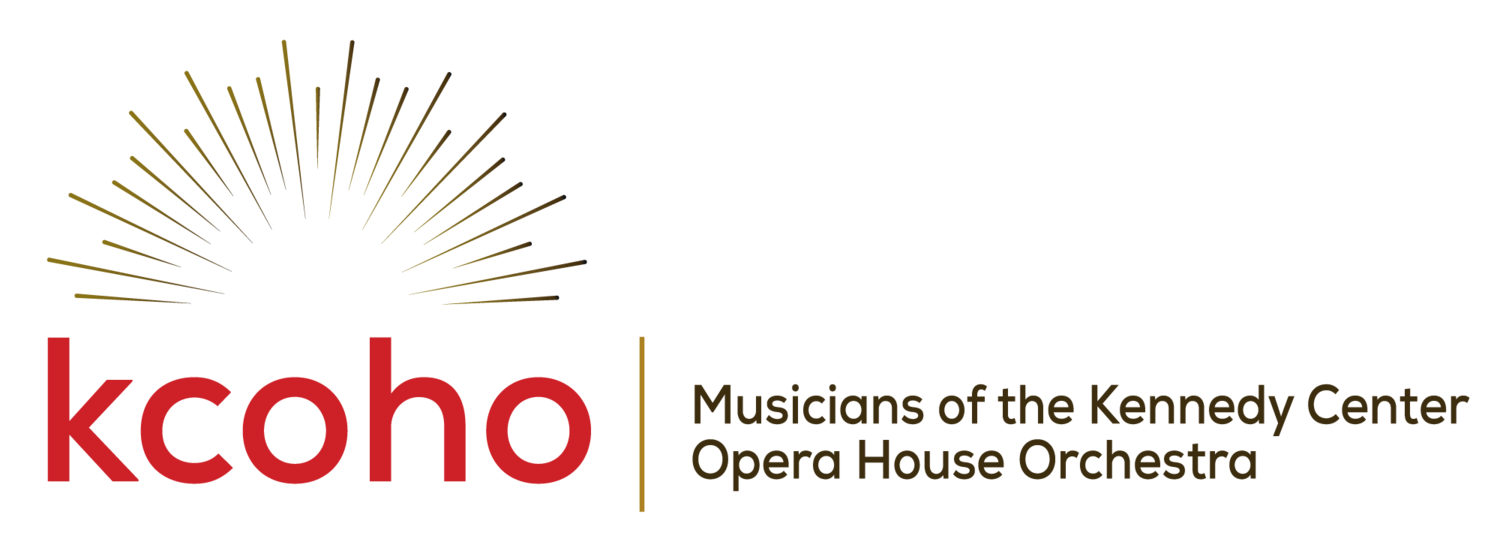Where are you from originally and where did you go to school?
I was born in Indiana, but raised in Madison, Wisconsin. I got a Bachelor's degree from Princeton, attended Cambridge University on a Churchill scholarship, and entered the PhD program in mathematics at the University of Chicago. I left without completing that degree, and got a Master of Music degree in performance from the University of Michigan.
What's your position in the orchestra and when did you join?
I am the Third horn. For historical reasons, in an orchestra, unlike in a band, the horns come in pairs—high and low. So I'm the high horn of the second pair. I joined the orchestra in 1997, three months after my first child was born. So I never have to think hard to remember how long I've been working here.
What are you most looking forward to playing this season?
Don Carlo. It has some fantastic music in it, in particular a dramatic horn quartet to open the second act. And our music director Philippe Auguin will be conducting, and he always brings a special level of energy.
What has been the highlight of your time here?
The Ring Cycle that we performed in 2016 has to be right at the top, but the tour to Japan in 2002 is a very close second.
Japan Tour 2002
Japan Tour Horn Section 2002
Japan Tour 2002
Ring Cycle Horns
Ring Cycle 2016
When did you start playing the instrument and what made you choose it?
I started in sixth grade, in 1977. I had seen an army band on tour in concert the previous year, and my mother had told me that the French horn players didn't use any valves to change pitches, only their lips. She was anachronistic by about two hundred years, but I guess something about the challenge of that intrigued me.
What made you want to become a professional musician?
I was planning to be a mathematician, but in the middle of getting my PhD I found myself completely unmotivated. I began thinking about what else I could do, and around that time I heard that a high school friend and horn-quartet colleague, who had gone on to music school, was achieving professional success as a horn player (she has been playing in the Metropolitan Opera Orchestra for about as long as I've been here). She inspired me to start down this road.
You currently serve as the Chair of our orchestra committee. How long have you served and what it is like being Chair? What are your duties? Have you served in any other committees or worked with our local union?
The orchestra committee is a team of five musicians who represent the orchestra in dealings with the management, including during labor negotiations. We very recently finished negotiating one-year renewals of our agreements with the Washington National Opera and the Kennedy Center, a task that took 12 full days of talks across the table and many more days of internal planning. And we are already starting the planning process for the next round.
I have been on the Committee since my second year in the orchestra, and I've been the Chair for five years. We have a very egalitarian committee, and try to make all decisions by consensus, so my role as Chair is more one of facilitator—I'm the point of contact on the committee for management, and when there's an issue that needs to be resolved, they'll come to me and then I will huddle with my fellow committee members to come to a decision.
For the last ten years I've also been the Administrator of the orchestra's Benefits Fund. Because we have two employers, we had to come up (thirty years ago) with an unusual arrangement to get health insurance and other benefits, namely a fund into which both employers contribute. The fund has two employer trustees and two union trustees (who make all the big decisions), as well as an Administrator who handles all the day-to-day business on their behalf—enrolling people in coverage, mailing premium payments to insurers, etc. So it's almost like I have a second job in Human Resources.
I served for one three-year term on the Executive Board of the D.C. Federation of Musicians, the local musicians union, but stepped down so I could serve on the governing board of the International Conference of Symphony and Opera Musicians (ICSOM), which is a players conference of the American Federation of Musicians representing the musicians of the 52 largest-budget orchestras in the country. I serve as the editor of their quarterly publication, Senza Sordino, which you can also find online at www.icsom.org/senzasordino.
What do you like to do in your spare time?
What does "spare time" mean? I used to do a fair bit of gardening, but that has fallen by the wayside. In the last decade I've become a fairly serious recreational runner—meaning that I do a lot of it, not that I'm particularly fast. I completed the Marine Corps Marathon in 2013, and this past May I organized a group of my colleagues to take part in the Semper Fi 5k and raise money for wounded vets and their families. To motivate me I embarked on a project to run the length of every street in Arlington. I'm currently in the third iteration of that, in which I'm taking the streets in alphabetical order.
The Semper Fi 5K, 2013
